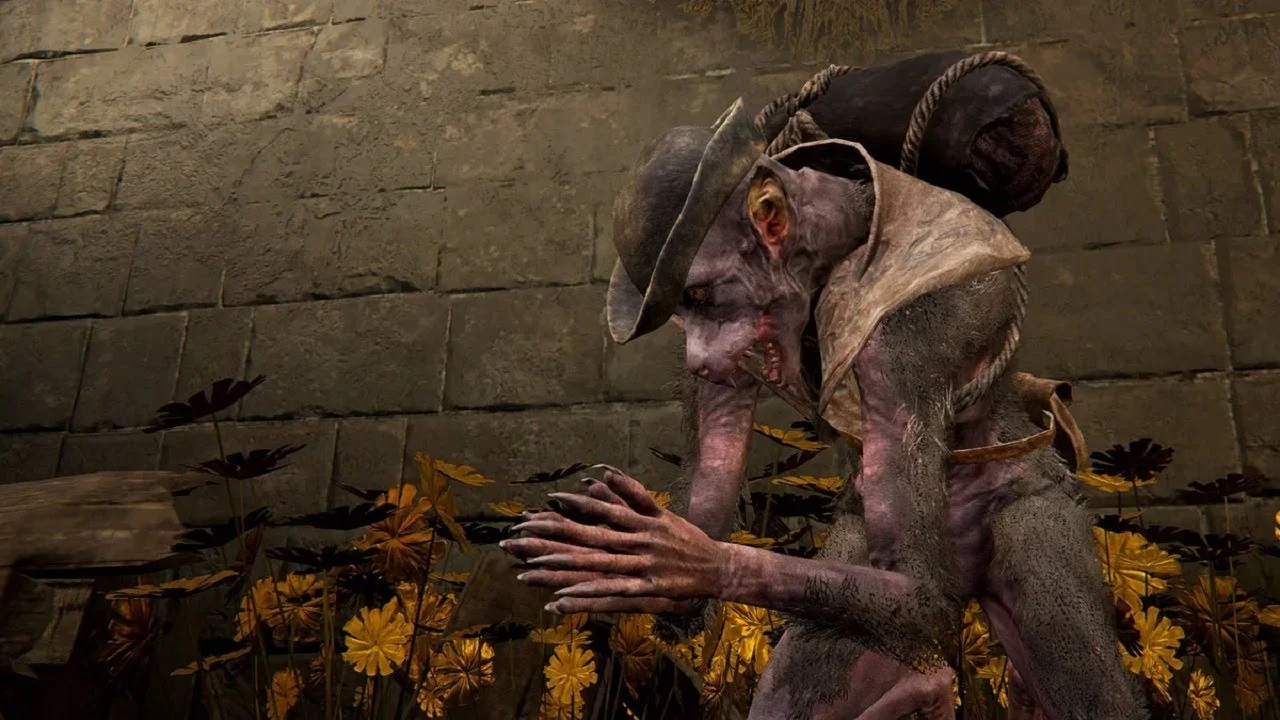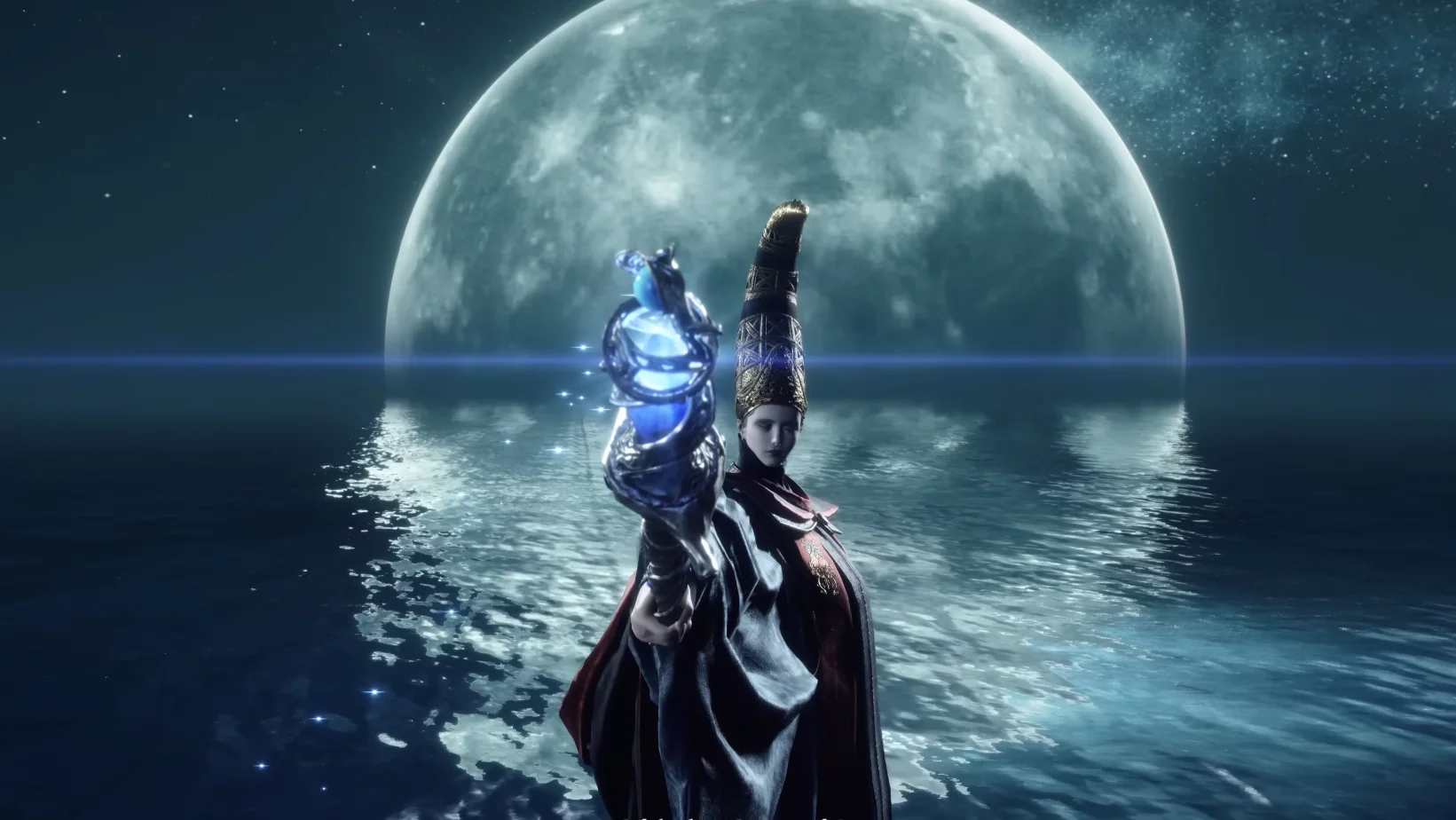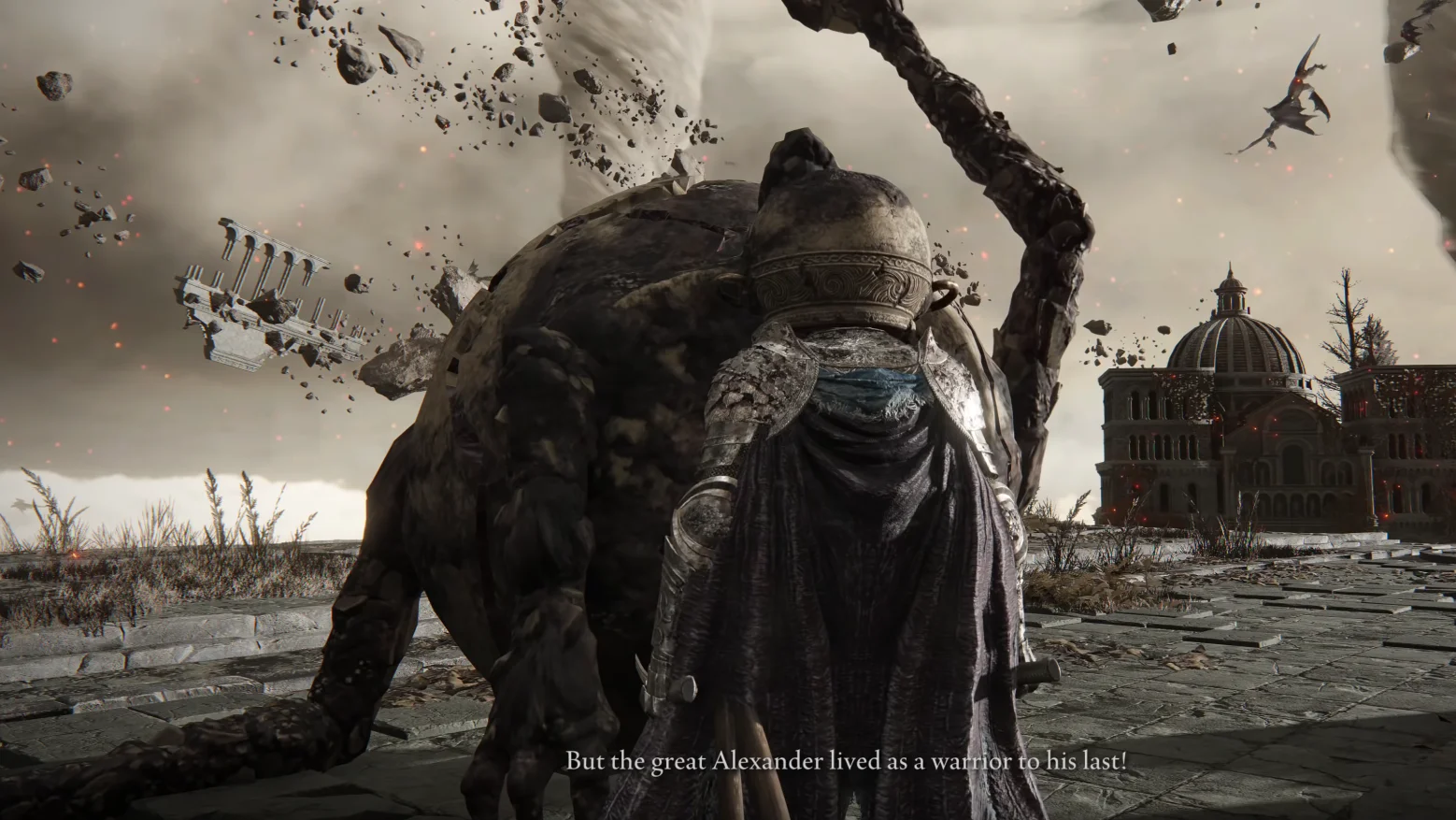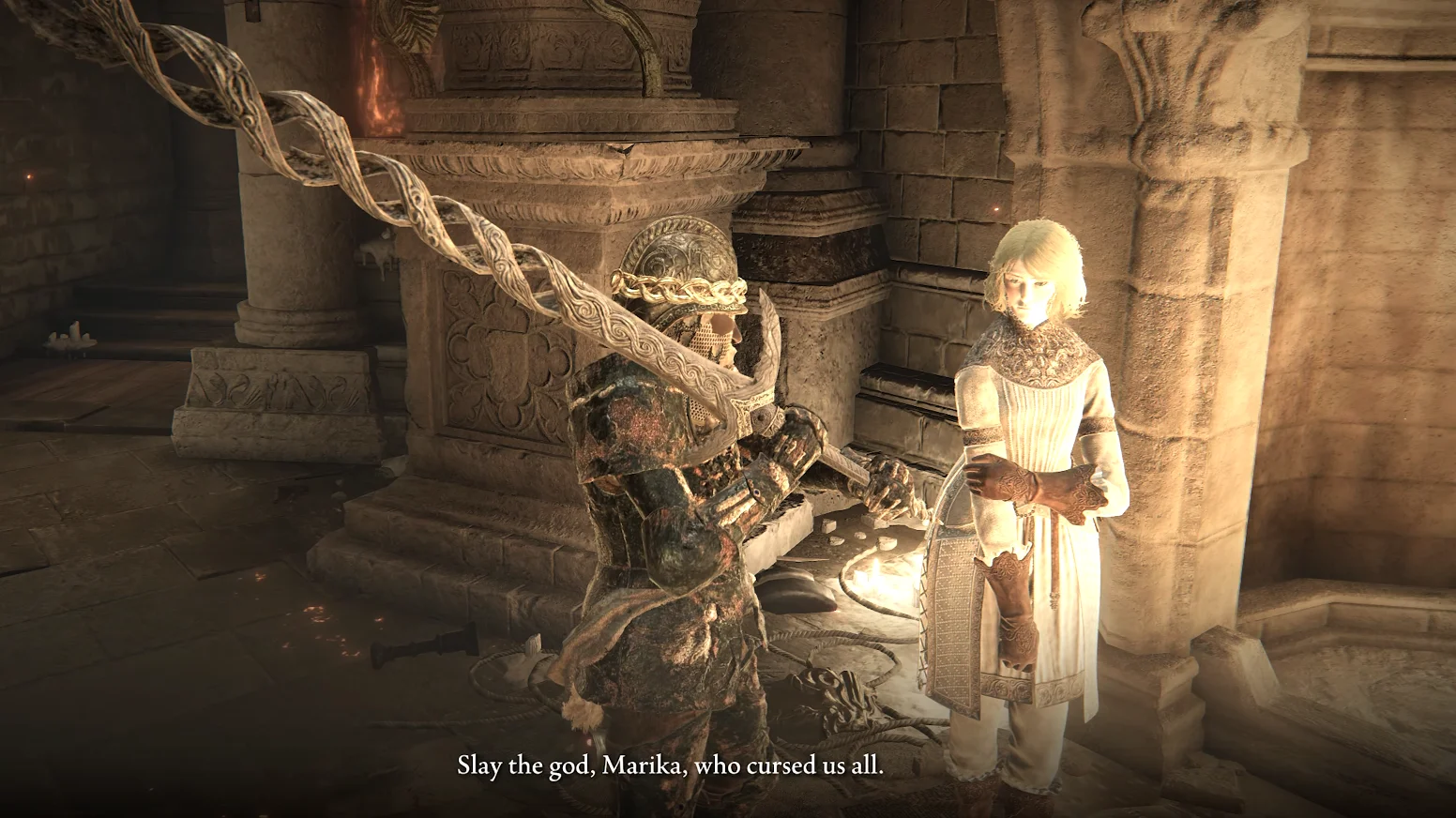· Elden Ring · 10 min read
Chains of Destiny: Unraveling the Mystery of Smithing Master Hewg
Bound by chains at the Roundtable Hold, Smithing Master Hewg is a master blacksmith and a cornerstone of the game's rich lore and intricate narrative. His role extends beyond weapon enhancement; it delves into his misbegotten origins, complex relationships, and mysterious connection to the divine plans of Queen Marika.
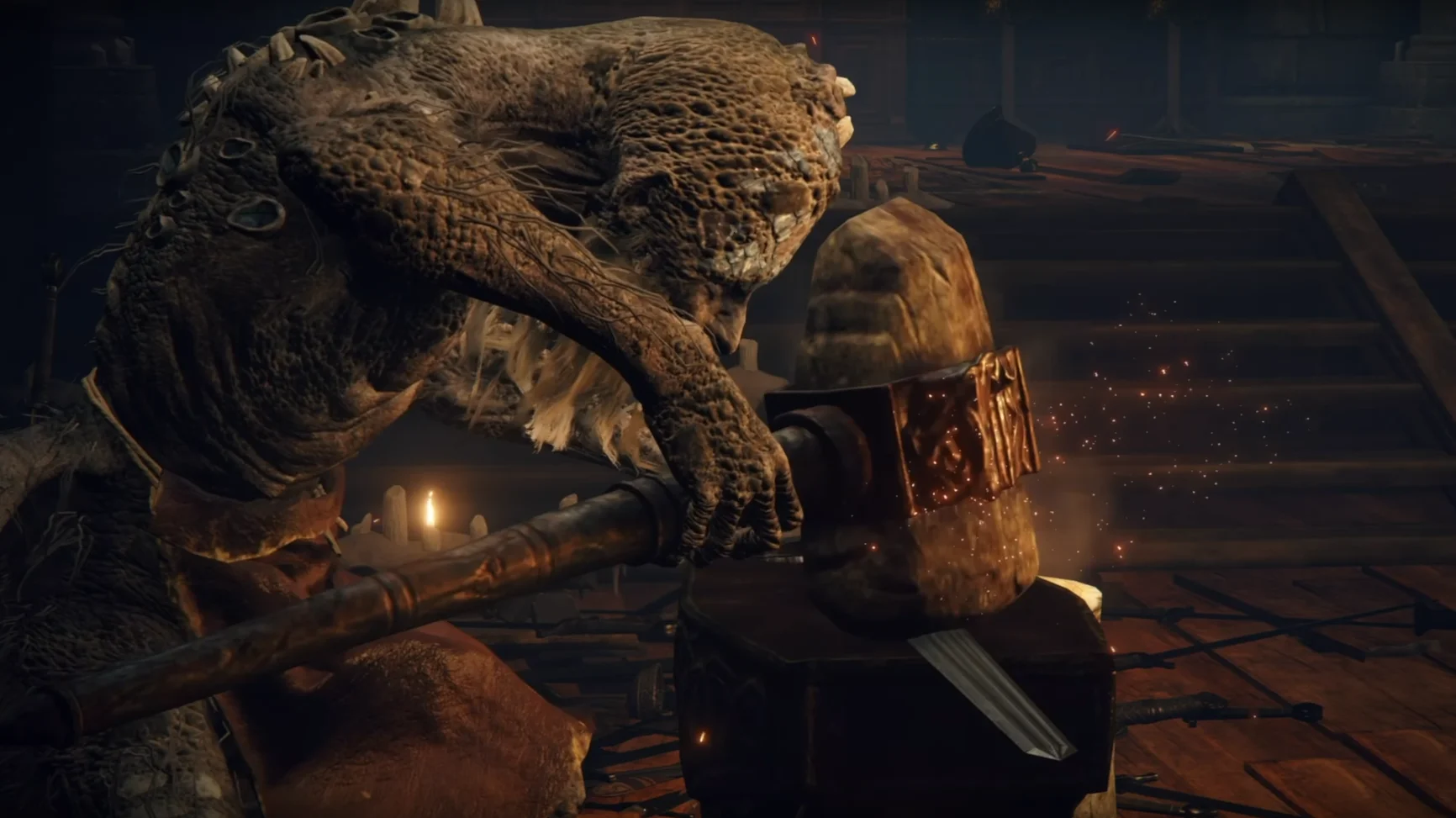
As players journey through Elden Ring, Hewg stands as a silent ally, his craftsmanship essential in the pursuit of slaying gods. His personal story invites players to explore themes of resilience, redemption, and the consequences of divine ambition.
Smithing Master Hewg Lore: His Role and Background
Smithing Master Hewg is a pivotal figure in Elden Ring, serving as a skilled blacksmith at the Roundtable Hold. This Misbegotten artisan enhances weapons beyond the +3 level, a crucial service for players facing daunting challenges. In addition to his weapon enhancement skills, Hewg duplicates Ashes of War, allowing players to experiment with different combat styles for a fee. His role is indispensable, providing the necessary tools for Tarnished adventurers to rise against formidable foes.
Despite his invaluable contributions, Hewg’s existence is marked by tragic complexity. As a Misbegotten, he is a rare entity capable of speech, akin to Iji, the only Troll who shares this trait. His imprisonment at the Roundtable Hold, bound by chains, adds layers to his character, reflecting both his resilience and resignation. Hewg’s dialogue hints at a deeper narrative, intertwining with the fates of other characters like Roderika.
His interactions with players reveal a character who, despite his bondage, finds solace in his craft, embodying a paradox of freedom through servitude. This duality enriches the game’s lore and invites players to ponder the mysteries of his past and the weight of his unyielding commitment to smithing.
The Prisoner Blacksmith: Hewg’s Chains and Imprisonment
In the dim confines of the Roundtable Hold, Smithing Master Hewg’s chains symbolize his imprisonment. These restraints, though oppressive, represent a deeper captivity—binding him in both body and spirit to the Hold. Hewg’s reflections on his status reveal a complex acceptance of his fate. He views the chains as nothing special, simply marking his condition, yet they signify his undying servitude to the Hold, trapping him in an eternal cycle of smithing for the “Tarnished lot.”
Despite the bleakness of his situation, Hewg’s resignation is not born from bitterness. Instead, he finds solace in his craft, asserting that as time passes, his technique only grows stronger. This acceptance, however, is tinged with an underlying fear, a “sheer terror” he attributes cryptically to a mysterious “her,” suggesting that his imprisonment is not just physical but existential.
Hewg’s imprisonment profoundly impacts his work, yet it does not deter his dedication to smithing. His chains, while physically restricting, do not hinder his craftsmanship; rather, they enhance his interactions with players. Hewg’s unwavering commitment is evident as he persistently urges players to “lay out your arms,” ready to forge weapons capable of slaying gods.
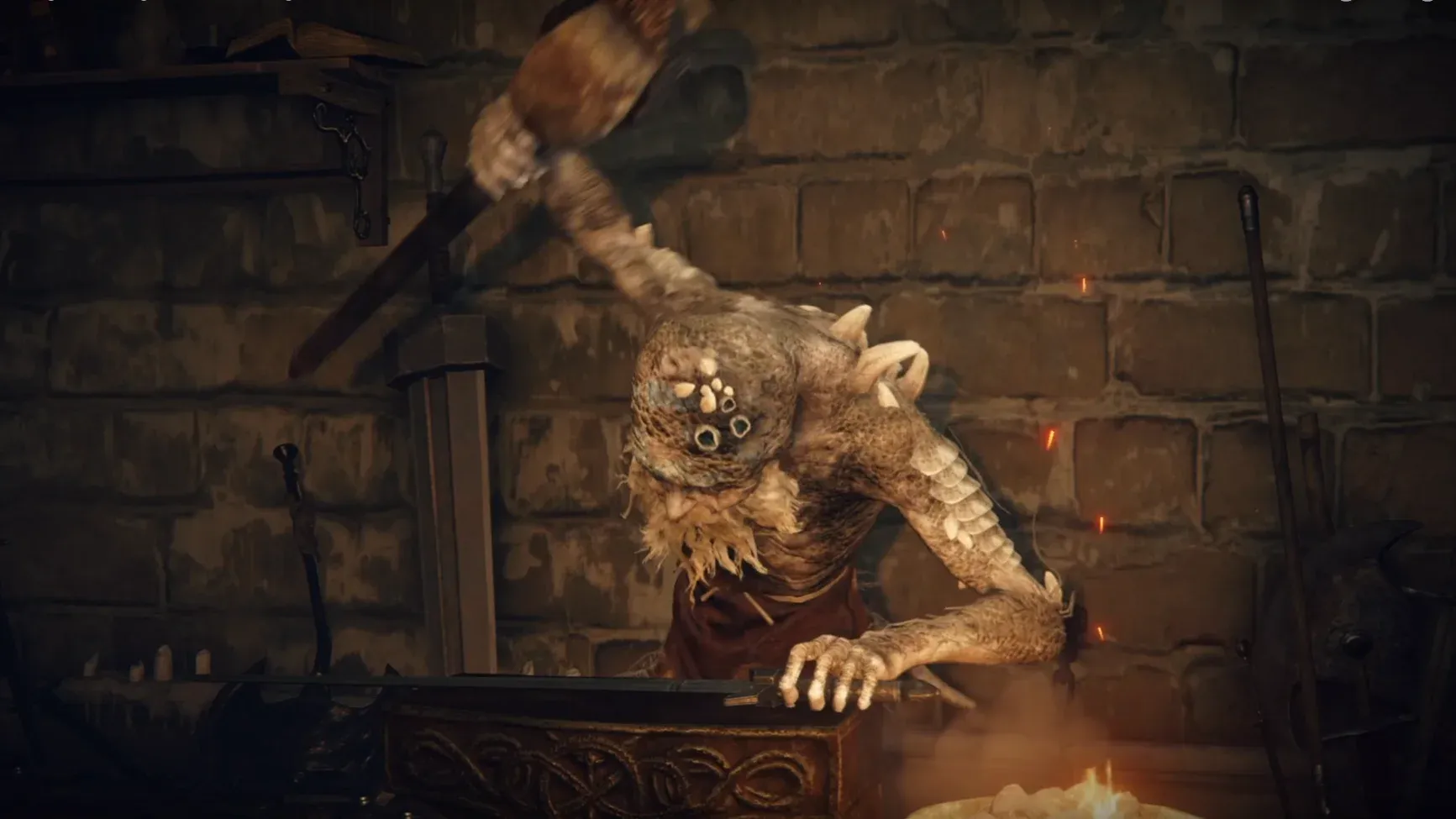
This dedication is a testament to his resilience and belief in the transformative power of his work. His interactions are marked by stoic professionalism, yet they reveal glimpses of vulnerability, especially when he prays for forgiveness from Queen Marika, hinting at a past transgression or unfulfilled promise. The chains on his legs are not merely shackles but symbols of a complex narrative, intertwining his identity as a master blacksmith with the overarching lore of Elden Ring.
Insight into Hewg’s Character and Relationships
Smithing Master Hewg is a testament to resilience and dedication, intricately woven into the tapestry of Elden Ring’s narrative. Despite the chains that bind him and his status as a prisoner, Hewg embodies an unwavering commitment to his craft. His demeanor, often brusque and straightforward, reveals a profound sense of purpose and acceptance of his fate.
Hewg’s interactions with players reveal a unique perspective; he does not harbor resentment for his imprisonment, viewing it instead as an opportunity to hone his skills and contribute to the player’s journey. In his eyes, smithing transcends mere labor—it is a form of redemption, a way to forget “the sheer terror of her” and focus on the art of strengthening weapons.
Hewg’s outlook on life is enriched by his interactions with other NPCs, particularly Roderika, hinting at a depth of character that extends beyond his role as a blacksmith. His conversations reveal a nuanced understanding of his situation, acknowledging his differences yet finding solace in the unchanging nature of his work.
Through his dedication, Hewg becomes more than just a blacksmith; he is a steadfast ally to the player, committed to crafting a weapon capable of god-slaying. This dedication adds complexity to the game’s narrative, portraying Hewg as a figure who, despite being bound by chains, finds freedom and purpose in his craft. His presence at the Roundtable Hold is not just a service but a testament to the enduring spirit of creation amidst adversity.
Hewg’s Connection with Roderika and Her Spirit Tuning Gift
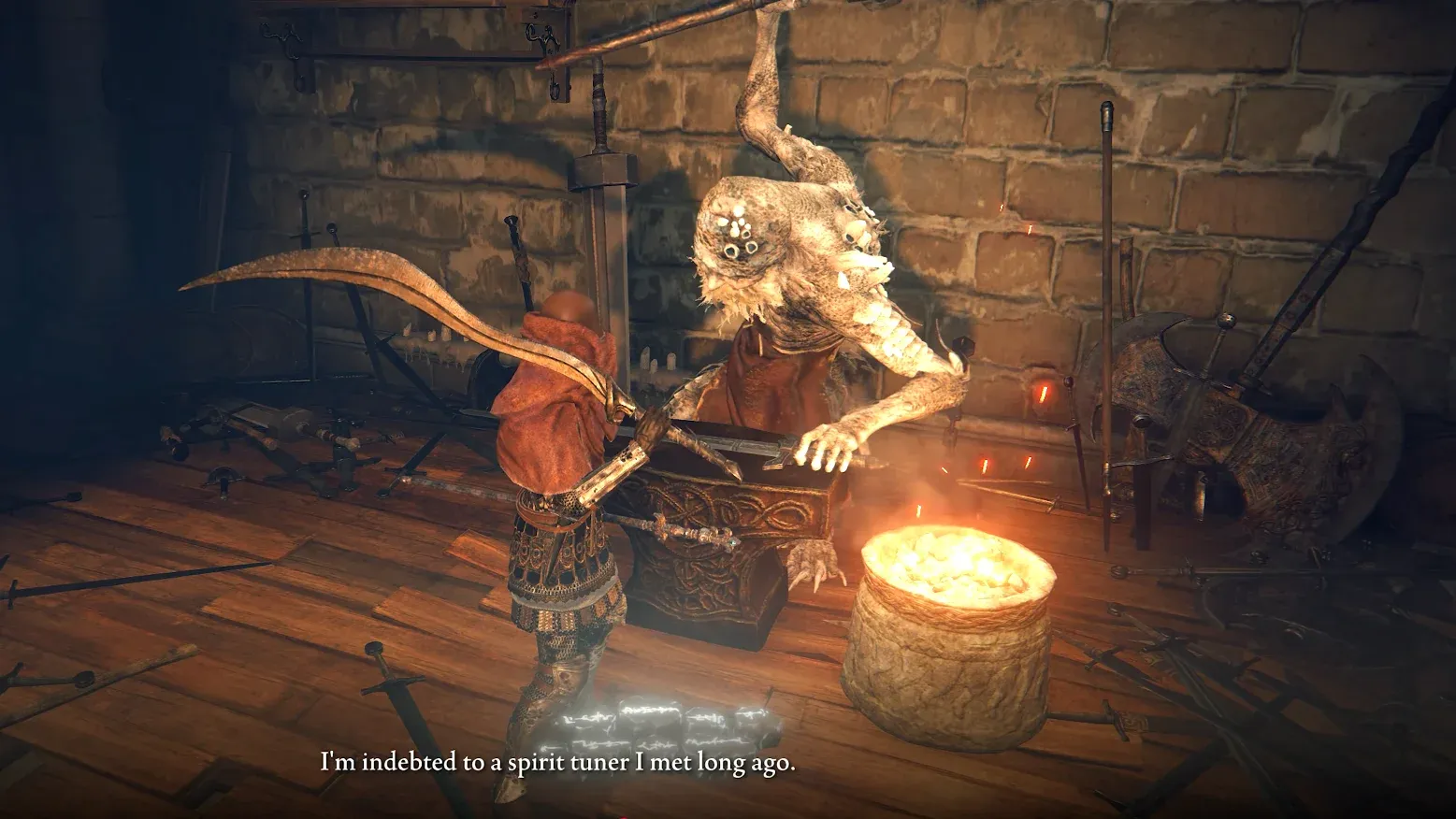
Hewg’s connection with Roderika is intertwined with his recognition of her innate talent for spirit tuning. Despite his intimidating demeanor and initial lack of warmth towards the Tarnished, Hewg perceives a unique gift within Roderika. This insight is a profound recognition that echoes his past encounters with another gifted spirit tuner, whose legacy he still holds dear. Hewg’s mentorship becomes a catalyst for Roderika, guiding her from a state of uncertainty to one of self-assuredness in her abilities. As he imparts his knowledge, Roderika transforms from a crestfallen wanderer to a certified spirit tuner, marked by her growing confidence and deepening understanding of spirits’ yearnings and destinies.
The bond between Hewg and Roderika is emblematic of a greater narrative thread within the game’s storyline, where past and present resonate with each other. Hewg’s acknowledgment of Roderika’s potential is not only a testament to his eye for talent but also a reflection of his own experiences and regrets. As Roderika finds her purpose within the Roundtable Hold, parallel to Hewg’s quest to craft a god-slaying weapon, their relationship underscores a shared destiny in aiding the Tarnished on their journey. This connection enriches the narrative, suggesting that Roderika’s path is not one of mere happenstance but a deliberate unfolding of a role she was perhaps destined to play, much like Hewg’s bound fate to the hold and Marika’s enigmatic designs.
The Mystery Behind Hewg’s Prayer and Penance for Queen Marika
Hewg’s enigmatic prayer to Queen Marika, pleading for forgiveness, adds a complex layer to his character and suggests a profound connection to the broader lore of Elden Ring. His words, “Your divinity, have mercy, and grant me forgiveness,” imply a significant transgression that warrants such penance. This contrition hints at a past intertwined with Marika’s divine plans, possibly linked to the creation of a godslaying weapon. The severity of his punishment, akin to Gurranq’s eternal hunger, suggests Hewg’s actions were not just personal failures but a betrayal or misuse of his blacksmithing skills that directly affected Marika’s ambitions or the balance of power within the Lands Between.
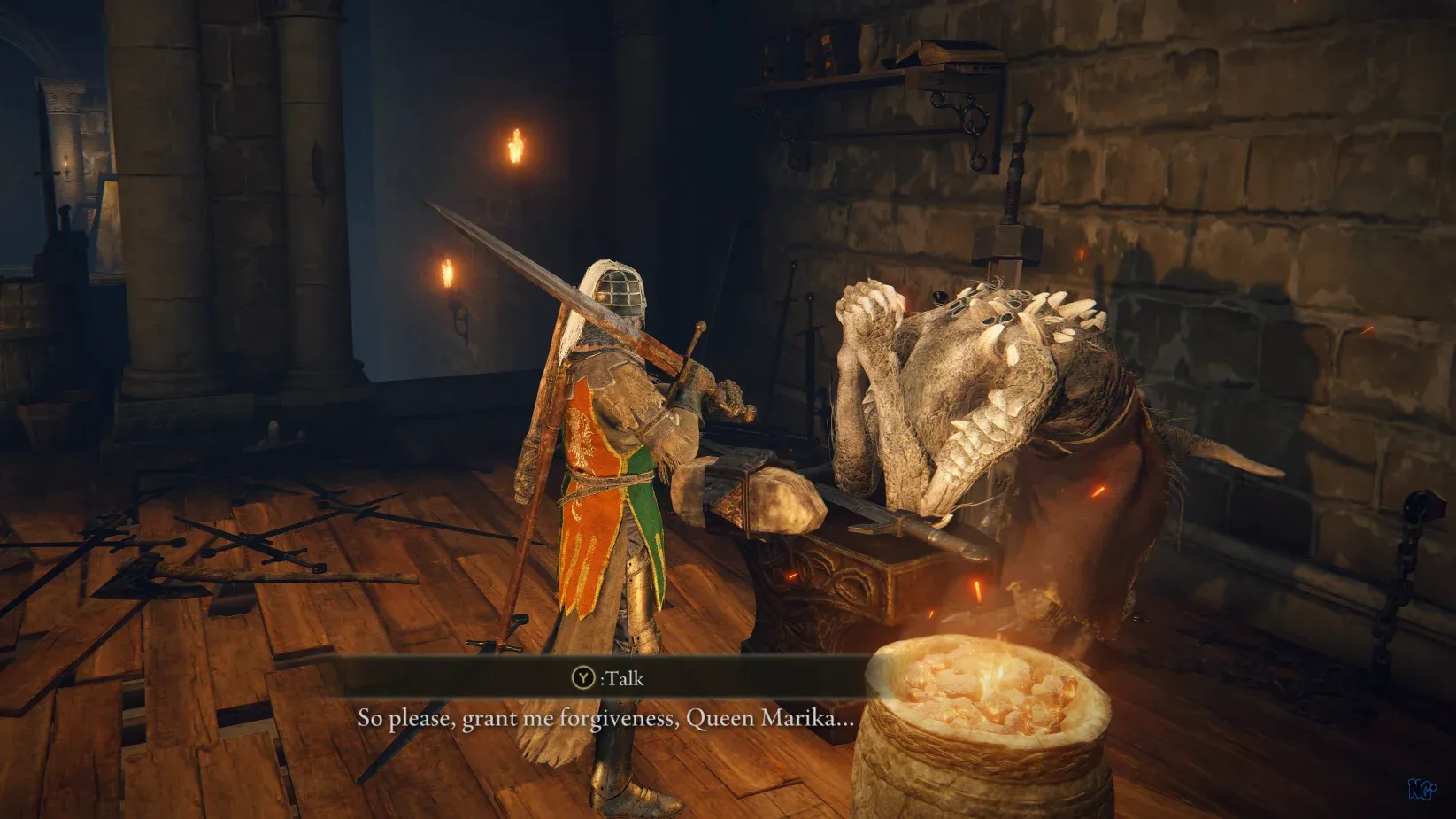
This prayer deepens Hewg’s narrative and ties into the overarching themes of duty and rebellion against divine mandates within the game. The ambiguity surrounding his penance suggests that Hewg may have wielded significant influence or knowledge, potentially crafting a weapon that challenged Marika’s divine order. His self-described monstrous nature and the chains that bind him to the Roundtable Hold suggest eternal servitude, mirroring Marika’s own entrapment by the Greater Will. Thus, Hewg’s prayer serves as a poignant reminder of the burdens carried by those entangled in the divine schemes of the Elden Ring universe, adding a rich layer of mystery to his character and hinting at a narrative thread that connects him to the larger tapestry of the game’s story.
Lore Theories: Hewg’s Role in Crafting the Godslayer Weapon
The theory that Hewg, the Misbegotten blacksmith, crafted a godslayer weapon for Queen Marika has gained attention due to intriguing evidence and speculation. Hewg’s dialogue and actions suggest a deep connection to a significant past event, possibly involving the creation of a weapon capable of slaying gods. His unwavering dedication to smithing such a weapon, even at the cost of his own freedom and life, hints at a profound sense of obligation or penance tied to his relationship with Marika. This theory is further supported by the notion that Marika would seek out a blacksmith with prior experience in crafting godslayer weapons, as implied by the context of Hewg’s prayer for forgiveness and his reference to a “masterpiece” intended to fulfill his promise to the queen.
The broader narrative of Elden Ring presents Hewg’s involvement in crafting a godslayer weapon as a critical piece of lore that intertwines with the game’s themes of divine conflict and rebellion. The possibility that Hewg’s craftsmanship contributed to significant events in the game’s history, such as a revolt or a clash with powerful entities, adds layers of complexity to his character and the role of the Misbegotten. Additionally, the theory posits that Hewg’s expertise may have been exploited by various factions or individuals, including those with motives contrary to Marika’s, further complicating his legacy.
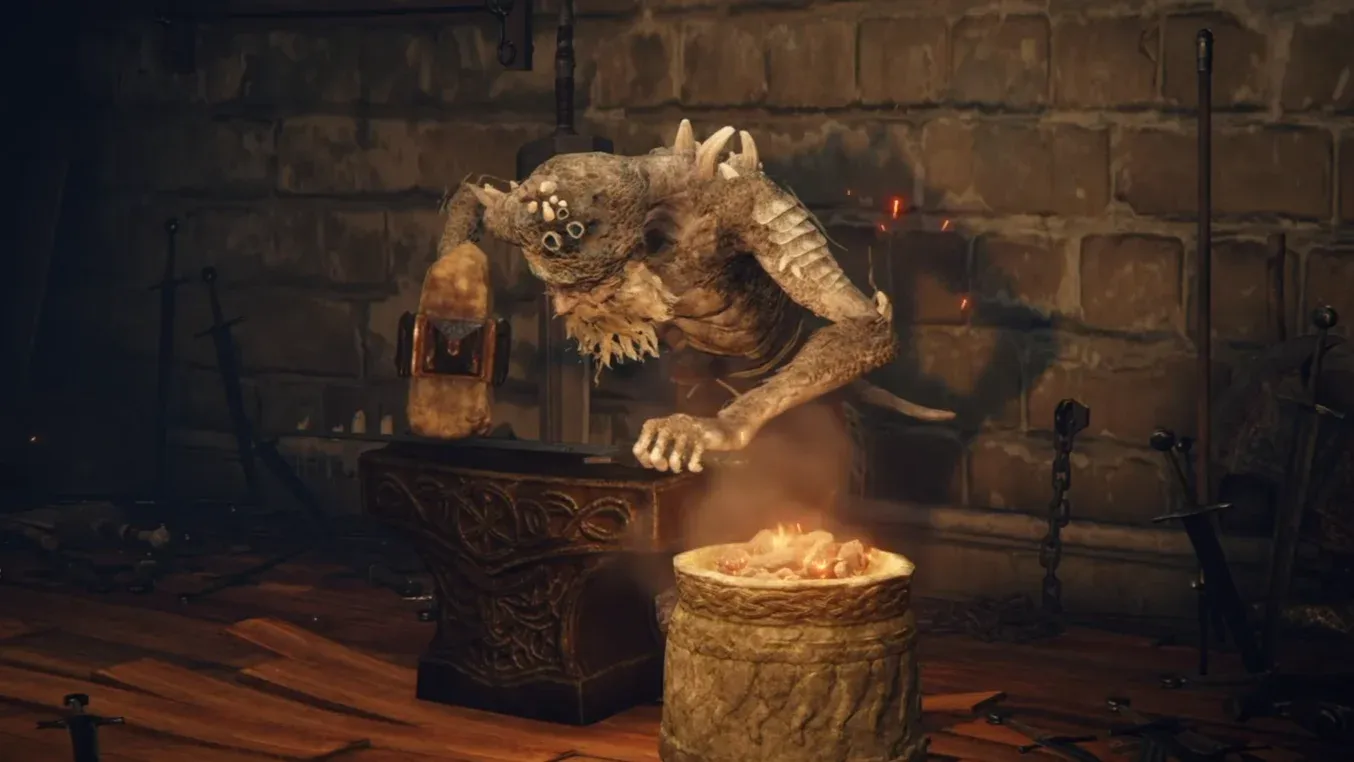
These layers of speculation not only enrich the narrative but also invite players to ponder the hidden connections within the world of Elden Ring, positioning Hewg as a pivotal yet enigmatic figure within its lore.
Misbegotten Origins: Hewg’s Unique Position and Historical Context
Hewg’s origins as a Misbegotten and his unique position within Elden Ring’s world offer a glimpse into the historical context of the Misbegotten race. These beings, often seen as savage creatures, have a deeper connection to the art of smithing, evidenced by their association with forges and weapon crafting. Hewg stands out as a rare Misbegotten capable of articulate speech, much like Iji, the only Troll who can communicate with the player. This sets Hewg apart, not only as a master blacksmith but as a bridge between the player and the enigmatic world of the Misbegotten. His role challenges the player’s perception of these creatures, suggesting a complex history and intelligence beneath their monstrous exteriors.
Hewg’s presence enriches the lore and player experience in Elden Ring by providing a narrative thread that intertwines with the game’s broader themes of regret, penance, and redemption. His dialogue reveals a deep-seated sense of duty and remorse, hinting at a past that demands atonement. This complexity adds emotional depth to the player’s journey, as Hewg’s craftsmanship becomes pivotal in the quest to slay gods.
His unique position as a speaking Misbegotten blacksmith highlights the diversity within the game’s world and invites players to ponder the untold stories of other Misbegotten. This enhances the richness and mystery of the Elden Ring universe.
Conclusion
Smithing Master Hewg’s tale is a testament to the profound storytelling that defines Elden Ring. His chains, both literal and metaphorical, symbolize the burdens of duty and the pursuit of redemption. Through his interactions, players gain insight into the complexities of the game’s universe, where every character, even a prisoner blacksmith, holds threads of destiny that intertwine with the greater narrative. Hewg’s enduring dedication, despite his imprisonment, enhances the player’s journey and enriches the tapestry of Elden Ring’s lore. This invites players to ponder the mysteries and motivations that drive this captivating world.
